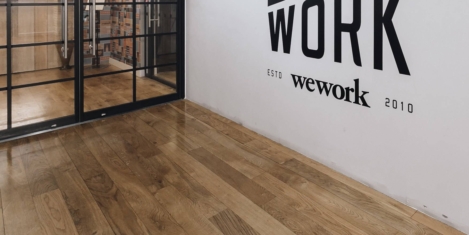September 10, 2015
Shared office ruling could cost Scottish firms millions more in rates 0
 Large firms that occupy several separate floors in a prime office may need to pay tens of thousands of pounds more in rates, property managers have been warned. The decision by the UK Supreme Court on business rates in shared office buildings will lead to higher fees for many businesses in Scotland, according to commercial property experts at Colliers International. The firm says that the case of Woolway Valuation Office v Mazars, in which the Supreme Court held that businesses occupying space across several floors should pay separate rates for each, will lead to changes in valuations across the country that will cost firms millions of pounds. Up until now, such arrangements were charged as a “single occupation” and benefited from economies of scale. Paying for two separate sets of rates is likely to be more expensive, and the court decision even allows for the changes to be implemented retrospectively.
Large firms that occupy several separate floors in a prime office may need to pay tens of thousands of pounds more in rates, property managers have been warned. The decision by the UK Supreme Court on business rates in shared office buildings will lead to higher fees for many businesses in Scotland, according to commercial property experts at Colliers International. The firm says that the case of Woolway Valuation Office v Mazars, in which the Supreme Court held that businesses occupying space across several floors should pay separate rates for each, will lead to changes in valuations across the country that will cost firms millions of pounds. Up until now, such arrangements were charged as a “single occupation” and benefited from economies of scale. Paying for two separate sets of rates is likely to be more expensive, and the court decision even allows for the changes to be implemented retrospectively.







 The number of firms planning to expand in London is at its highest level (50 percent) since 2012, though retaining employees and improving the capital’s infrastructure remain key concerns. According to the re-launched
The number of firms planning to expand in London is at its highest level (50 percent) since 2012, though retaining employees and improving the capital’s infrastructure remain key concerns. According to the re-launched 














 TechNorth, the Manchester based technology hothouse devised as a regional counterbalance to London, is held in higher regard than the capital’s flagship TechCity development, according to research from recruitment firm Robert Half. The study of IT decision makers across the UK claims that the vast majority would prioritise working with Northern firms over their London counterparts, with 87 percent either ‘highly likely’ or ‘somewhat likely’ to place work with IT businesses in the TechNorth hub rather than those in TechCity London given the choice. The figure is 100 percent for IT leaders based in the North and to 95 percent for those in Scotland. More surprisingly, 80 percent of those based London and the South East said they would prioritise TechNorth, as did 75 percent in the South West and Wales.
TechNorth, the Manchester based technology hothouse devised as a regional counterbalance to London, is held in higher regard than the capital’s flagship TechCity development, according to research from recruitment firm Robert Half. The study of IT decision makers across the UK claims that the vast majority would prioritise working with Northern firms over their London counterparts, with 87 percent either ‘highly likely’ or ‘somewhat likely’ to place work with IT businesses in the TechNorth hub rather than those in TechCity London given the choice. The figure is 100 percent for IT leaders based in the North and to 95 percent for those in Scotland. More surprisingly, 80 percent of those based London and the South East said they would prioritise TechNorth, as did 75 percent in the South West and Wales.
 Plans for what is billed as the tallest office building outside of London have been submitted to Birmingham City Council for approval. The proposed 26 storey tower at 103 Colmore Row is planned to stand 346ft (105m) and house some 2,000 office workers. Birmingham is bound to find the scheme attractive as it vies with Manchester for the crown of England’s second city. Up to now, tall buildings have not enjoyed the same appeal in regional cities as much as they have in London. The new building is planned to replace the former NatWest tower which has lain empty on the development site since 2003 and is set to be demolished once plans are finalised for its replacement. If given a green light, the new scheme will incorporate a rooftop restaurant, green roof, terraces, street level shops and cafes and a winter garden.
Plans for what is billed as the tallest office building outside of London have been submitted to Birmingham City Council for approval. The proposed 26 storey tower at 103 Colmore Row is planned to stand 346ft (105m) and house some 2,000 office workers. Birmingham is bound to find the scheme attractive as it vies with Manchester for the crown of England’s second city. Up to now, tall buildings have not enjoyed the same appeal in regional cities as much as they have in London. The new building is planned to replace the former NatWest tower which has lain empty on the development site since 2003 and is set to be demolished once plans are finalised for its replacement. If given a green light, the new scheme will incorporate a rooftop restaurant, green roof, terraces, street level shops and cafes and a winter garden.







July 9, 2015
London transport shuts down ….. agile workers unaffected …..
by Paul Carder • Cities, Comment, Flexible working, Wellbeing
(more…)